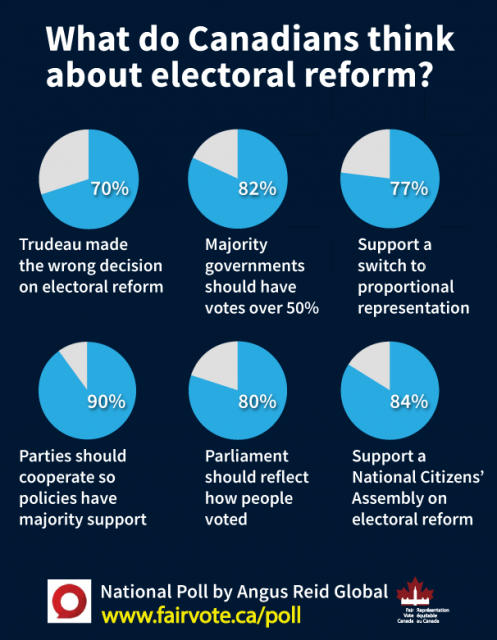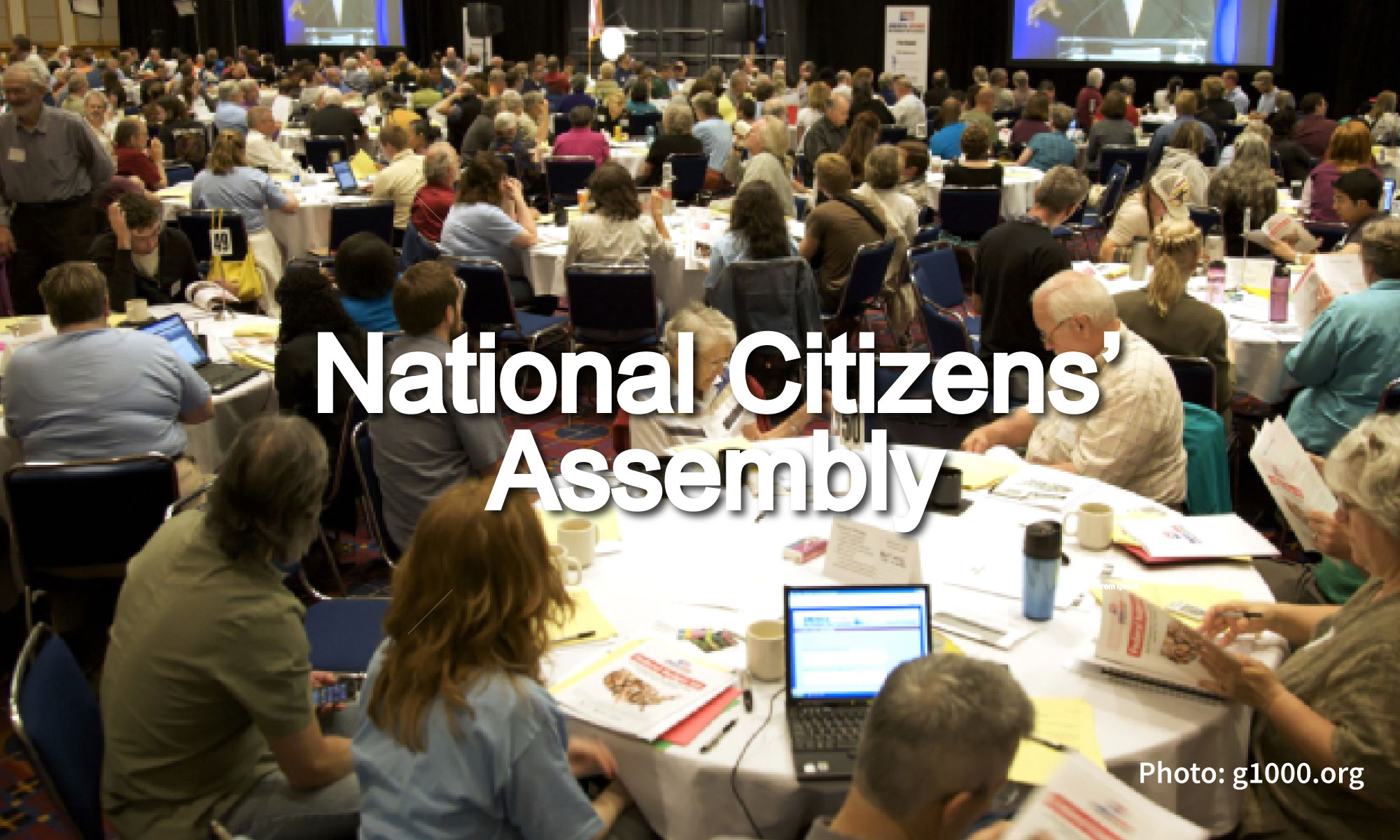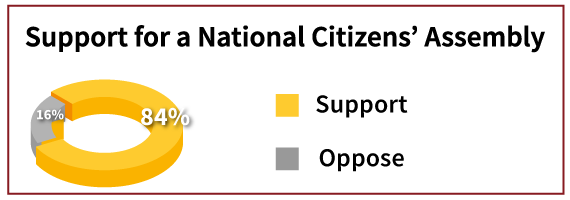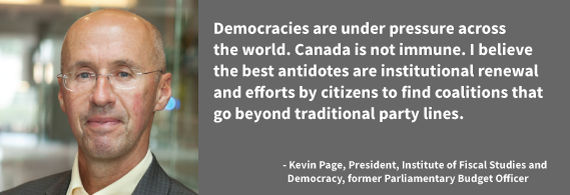From the carbon tax to fossil fuel subsidies, here are eight things we can expect from a minority government

…The Liberals could work with either the NDP or the Bloc Quebecois (or some combination thereof) and remain in power.
Both the NDP and the Bloc have strong environmental platforms — arguably stronger than the Liberals — so if anything the Liberals can be expected to take a stronger stance on environmental issues.
There’s much we don’t know, but here are a few things we can reasonably expect to happen on the environment file.
1) The carbon tax will stay in place
An escalating price on carbon has been the cornerstone of the Liberals climate plan and they’ll have plenty of support to keep the carbon tax in place. The NDP also promised a carbon tax, but vowed to take it a step further by removing exemptions for heavy polluters.
Meanwhile, the Bloc Quebecois proposed that Ottawa impose a carbon tax in provinces where greenhouse gas emissions per capita are higher than average and that the proceeds be paid to provinces where emissions are lower, creating a form of green equalization. Trudeau will almost certainly be concerned about Albertan alienation, so he’ll avoid getting involved in that plan.
2) About those fossil fuel subsidies …
Back in 2015, the Liberals promised to phase out fossil fuel subsidies over the “medium term,” but Environmental Defence estimates the federal government is still handing out $3.3 billion a year to the fossil fuel industry. The NDP and the Bloc Quebecois campaigned on a promise to eliminate fossil fuel subsidies, a policy that enjoys tremendous public support. Could they use their newfound power to push for this phase out to start sooner rather than later?
3) The Trans Mountain pipeline debate is unlikely to be re-opened in Parliament, unless …
While many of the opposition parties might want to re-open this debate, it’s hard to see an opening for them to do so given the pipeline is already approved. Even if the NDP, Greens and Bloc Quebecois wanted to force a confidence vote on it, the Conservatives would side with the Liberals on this one.
However, the Liberals still need to find $10 to $15 billion to build the pipeline.
“The public financing of the project does seem to present a bit of a pickle,” said Kai Nagata of Dogwood, a B.C. democracy group. “It doesn’t seem likely the NDP/Bloc/Greens could vote for a budget with pipeline construction funds, but the Conservative party probably couldn’t stomach voting for everything else.”
Nagata added: “Even the Conservatives should be philosophically uncomfortable with borrowing money, in a deficit, to spend on corporate welfare.”
4) Buh-buy single-use plastics
The Liberals promised to start phasing out single-use plastics starting around 2021. The NDP, meanwhile, wants to intensify that approach by straight-up banning single-use plastics by 2022. Any which way, single-use plastics such as bags and straws are likely going the way of the dodo.
5) Full steam ahead on conservation
The Trudeau government has made significant progress toward meeting its Aichi Biodiversity targets: it pledged to protect at least 17 per cent of terrestrial area and inland waters, and 10 per cent of its oceans, by 2020. A flurry of big new protected areas has moved that along.
The Liberals have also committed to conserving 25 per cent of Canada’s land, freshwater and ocean by 2025 and to working toward conserving 30 per cent by 2030. They also plan to advocate for countries around the world to set a 30 per cent conservation goal.
Additionally, the Liberals have identified the opportunity to reduce emissions by 30 megatonnes by 2030 using natural climate solutions that support efforts to better manage, conserve and restore forests, grasslands, agricultural lands, wetlands and coastal areas — as well ad by planting two billion trees.
The NDP and Greens have also committed to the goal of conserving 30 per cent of land, freshwater and oceans by 2030.
So, watch for more Indigenous protected areas, national parks and marine protected areas.
6) Expect more electric vehicles
The Liberals have set a target of 30 per cent of all light-duty vehicles on the road being electric by 2030. The Bloc Quebecois also support measures to require manufacturers to sell more electric vehicles. And the NDP support maintaining the $5,000 federal incentive for electric vehicle purchases while eliminating federal sales tax on them. One way or another, electric vehicle incentives are here to stay.
7) A lot of Albertans are going to be outraged
With Conservatives winning a higher percentage of the popular vote than the Liberals nationwide, and winning every seat in Alberta and Saskatchewan except for one, Westerners are rightly going to be upset about ending up with so little say in Ottawa. How that will manifest is yet to be seen, but I’d wager a bet it ain’t gonna be pretty.
8) Will electoral reform have its moment in the sun?
The NDP and Greens have long supported a move to proportional representation — an electoral system that would ensure the allocation of seats is more in line with the popular vote than our current first-past-the-post system. With the Conservatives being the latest losers under the first-past-the-post system, one has to wonder if there might be a cross-party push for a referendum on modernizing our electoral system.
Much more will become clear over the coming weeks and months, but for now what we know is that the Liberals will have to work with some combination of the NDP and Bloc Quebecois — and that means that if anything, they’ll have a stronger mandate to take bold action on the climate crisis.
/https://www.thestar.com/content/dam/thestar/opinion/letters_to_the_editors/2019/11/02/new-zealand-offers-solution-to-canadas-electoral-woes/justin_trudeau.jpg)









/arc-anglerfish-tgam-prod-tgam.s3.amazonaws.com/public/NEDFP3LM3JLRJMUUYPRL6JLZNY.jpg)